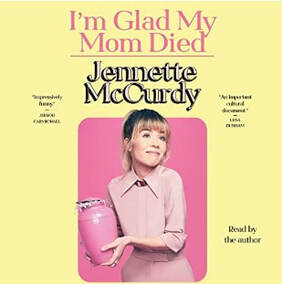|
by Courtney R. Hall
0 Comments
by Allison Padron For some, the words "literary fiction" brings up images of tweed jackets, learned academics, dinner conversations over wine, and personal libraries filled with only the finest of literature. The "literary" label is usually applied by critics to novels considered so intellectual, so linguistically beautiful, and so meaningful that they apparently need to be separated out from the mass-market, "mindless" genre novels. The debate about the distinctions between genre fiction and literary fiction still rages (as it likely will for many more years), with some classifying literary fiction as an entirely different genre, others as a continuum with genre fiction, and still others saying the "literary" quality is something that a novel of any genre can possess. From everything I’ve read on the subject, though, no one seems to have come up with a clear definition of literary fiction (other than "not genre fiction"), which begs the question: why call anything literary fiction at all?
by Gianna Forgen  Photo by Annie Spratt on Unsplash Photo by Annie Spratt on Unsplash When I was in elementary school, I read all the time. I vividly remember, during a snack break, I had become so entranced by my book that I had missed my teacher calling my table for our turn to use the bathroom. I remember, too, the look on her face, probably wondering if it was worse that I hadn’t listened, or worse to chastise me for reading. Back then, it felt like everyone loved to read. When we filled out posters at the beginning of the school year detailing our hobbies, two took precedence above all others: reading and writing. As students, we had to read, of course, but it seemed like everyone still enjoyed it, at least the kids in my class. In elementary school, a boy I was friends with and I read the entire Harry Potter series at the same time–he finished Deathly Hallows only fifteen minutes before me. He was one of the most voracious readers I knew.  by Courtney R. Hall Celebrity memoirs and autobiographies are nothing new. They act as a fruitful branch of a celebrity’s branding arsenal and are a cash cow for publishers. Spanning decades, it’s been a commonly held belief that many, if not all, of these memoirs were written by an unnamed third party, a ghostwriter. These publications would be seen as a piece of PR material created for super fans, full of fluff like a celebrity's go-to salad that they would consume daily on the set of the television program that made them famous. However, there is a shift occurring in the world of celebrity memoirs and those with fame taking control of their own narrative. Some celebrities have raised the bar for what constitutes a great celebrity memoir in an era where social media blurs the distinction between privacy and publicity and shortens the gap between stardom and the unfamous. In a post #FreeBritney culture, the public is aware of how destructive and misleading both the paparazzi and media are towards celebrities, especially those that are women. Fans are tired of being spoon fed fluff. What they now crave is authenticity. by Skyla Everwine  Photo by Jo Szczepanska on Unsplash Photo by Jo Szczepanska on Unsplash The most punk-rock thing I did this semester was stand in line at a UPS and try not to cry. It wasn’t the basement shows or broken guitar strings, but being at UPS at 4 p.m. on a Tuesday. I had but one task: to print nine pages, double-sided and in color. And then do that until 50 more times. It was the fourth or fifth printer I had gone to in order to print the zine I was making. I had learned that commercial printers were hellish portals to untamable frustrations, and that making the project for my Self-Publishing course with Dr. Jason Luther was far more difficult than it needed to be. I had turned what could have been a single page mini-zine into 36 pages of digital and hand-collaged interviews. |
Archives
July 2024
Categories
All
|
|
Glassworks is a publication of Rowan University's Master of Arts in Writing 260 Victoria Street • Glassboro, New Jersey 08028 [email protected] |
All Content on this Site (c) 2024 Glassworks
|


 RSS Feed
RSS Feed
